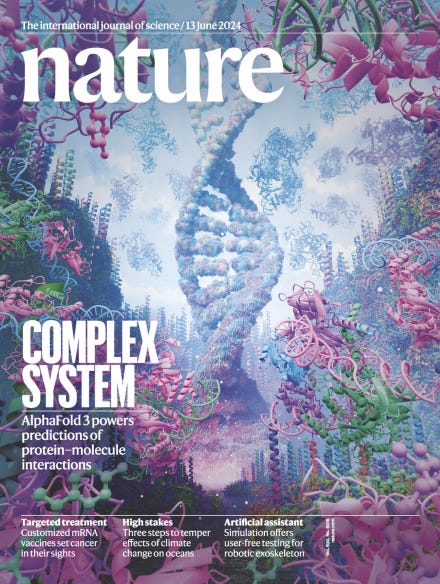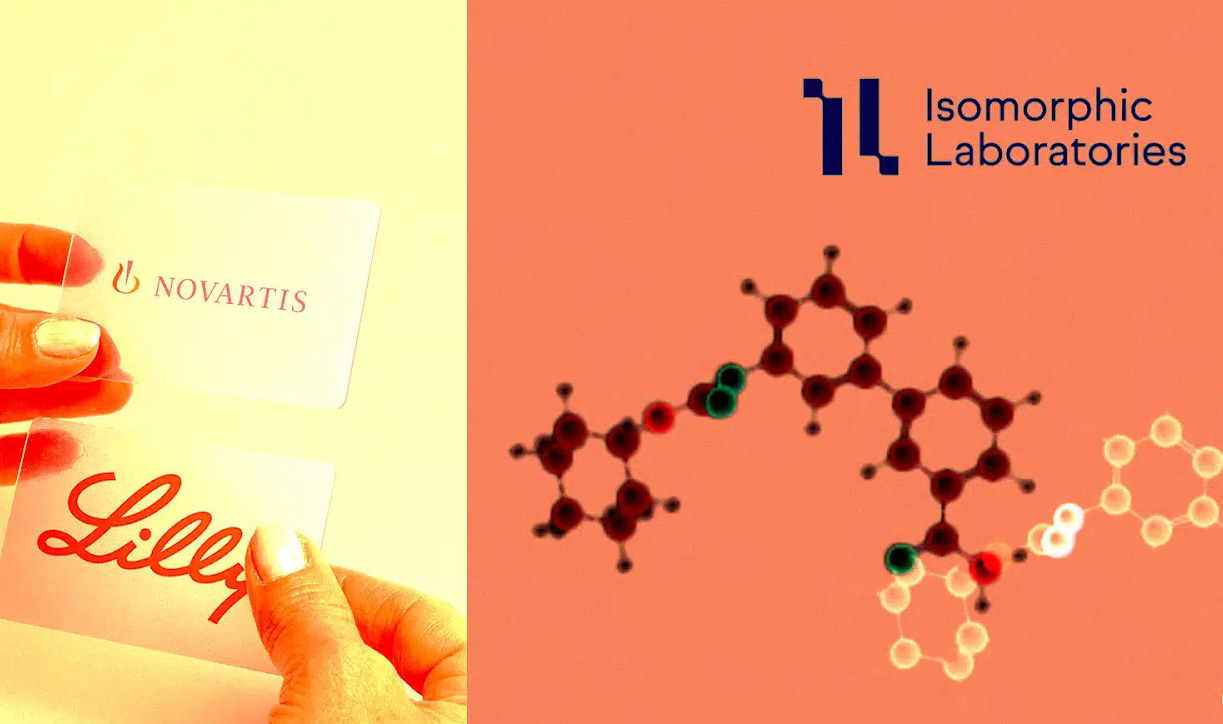Google DeepMind's release of AlphaFold 3 marks a significant leap in computational biology, extending its predictive capabilities beyond proteins to include DNA, RNA, and small molecule ligands. This broadened scope offers profound insights into the intricate interactions that drive biological processes, paving the way for advancements in drug discovery.
AlphaFold 3 achieves up to 80% accuracy in predicting biomolecular interactions, a notable improvement over previous models. This precision is crucial for drug discovery, where understanding drug-target interactions can dramatically influence therapeutic outcomes. For instance, AlphaFold 3’s ability to model protein interactions involved in disease pathways such as cancer and Alzheimer’s disease facilitates the identification of new therapeutic targets, potentially leading to innovative treatments (blog.google) (Nature).
Google DeepMind has established significant partnerships to leverage AlphaFold 3’s capabilities. Collaborations with pharmaceutical giants like Novartis and Eli Lilly use AlphaFold 3's predictive power to accelerate the drug discovery process, enhancing the development of new therapies for a range of diseases. Additionally, Isomorphic Labs, a DeepMind spinoff, focuses on applying AI in drug discovery, working alongside these pharmaceutical companies to translate computational findings into actionable medical solutions. These partnerships involve substantial financial commitments, potentially worth nearly $3 billion, highlighting the significant investment in leveraging AlphaFold 3 for drug design (Isomorphic Labs) (Yahoo).
While AlphaFold 2 was released as open-source, AlphaFold 3 follows a different approach. The core model is not open-source; instead, DeepMind provides the AlphaFold Server—a user-friendly interface that grants researchers worldwide access to AlphaFold’s predictive capabilities for non-commercial use. This model allows broad utilization in the scientific community while restricting commercial exploitation without specific agreements (Google DeepMind) (Fast Company).
The decision to limit full open-source access has sparked debate. Proponents argue that this approach protects intellectual property while still providing significant utility to researchers globally, balancing commercial interests with academic freedom. Critics, however, suggest that full open-source access could spur broader innovation and application, accelerating scientific discovery and application even further (blog.google) (The Independent).
AlphaFold 3’s applications extend to addressing numerous global health challenges, including Long Covid, Chronic Fatigue Syndrome (CFS), mental illness, cancer, and other pressing health issues. By modeling protein networks involved in various biological processes, AlphaFold 3 opens new avenues for identifying therapeutic targets that could lead to effective treatments for these complex conditions.
For Long Covid, proteins involved in the immune system's response to viral infections, such as interferons and cytokines, play critical roles. Disruptions in these protein interactions could contribute to persistent symptoms. AlphaFold 3 helps map these proteins and their interactions with high accuracy, potentially identifying new targets for therapeutic intervention (Fast Company) (The Independent).
Similarly, for CFS, the modeling focuses on proteins involved in energy metabolism and cellular stress responses. Dysfunctions in mitochondrial proteins or those managing oxidative stress are suspected contributors to the fatigue and pain associated with CFS. AlphaFold 3's accurate predictions of these structures and interactions could pinpoint malfunctions or identify novel drug targets aimed at mitigating these dysfunctions (Fast Company) (Yahoo).
In mental illness, understanding the intricate protein interactions within the brain is crucial. AlphaFold 3’s ability to model these interactions provides insights into the molecular mechanisms underlying conditions such as depression, schizophrenia, and bipolar disorder. By elucidating the structures of neurotransmitter receptors and related proteins, AlphaFold 3 facilitates the development of more targeted and effective psychiatric medications (Yahoo).
For cancer, AlphaFold 3’s precision in modeling protein interactions in oncogenic pathways can lead to the discovery of novel targets for cancer therapy. By understanding how proteins involved in cell growth, apoptosis, and metastasis interact, researchers can develop drugs that more effectively disrupt cancer progression, particularly valuable for identifying treatments for cancers resistant to current therapies (Nature) (AI News).
Moreover, AlphaFold 3 holds promise for tackling other unsolved diseases by providing a detailed map of protein interactions crucial in disease mechanisms. This includes rare genetic disorders where specific protein malfunctions are not yet fully understood. By offering a comprehensive understanding of these molecular interactions, AlphaFold 3 enables the identification of potential therapeutic strategies previously out of reach (Fast Company) (Yahoo).
AlphaFold 3 stands as a beacon of progress in integrating artificial intelligence with biological research, driving forward drug discovery capabilities, and offering new hope for tackling complex diseases. Its collaborative efforts with major pharmaceutical companies and the strategic decision to manage its source access model showcase a pragmatic approach to fostering innovation while protecting intellectual property. As AlphaFold 3 continues to evolve, it promises to reshape the landscape of medical research, offering profound implications for the future of healthcare and disease treatment (blog.google) (The Independent).







